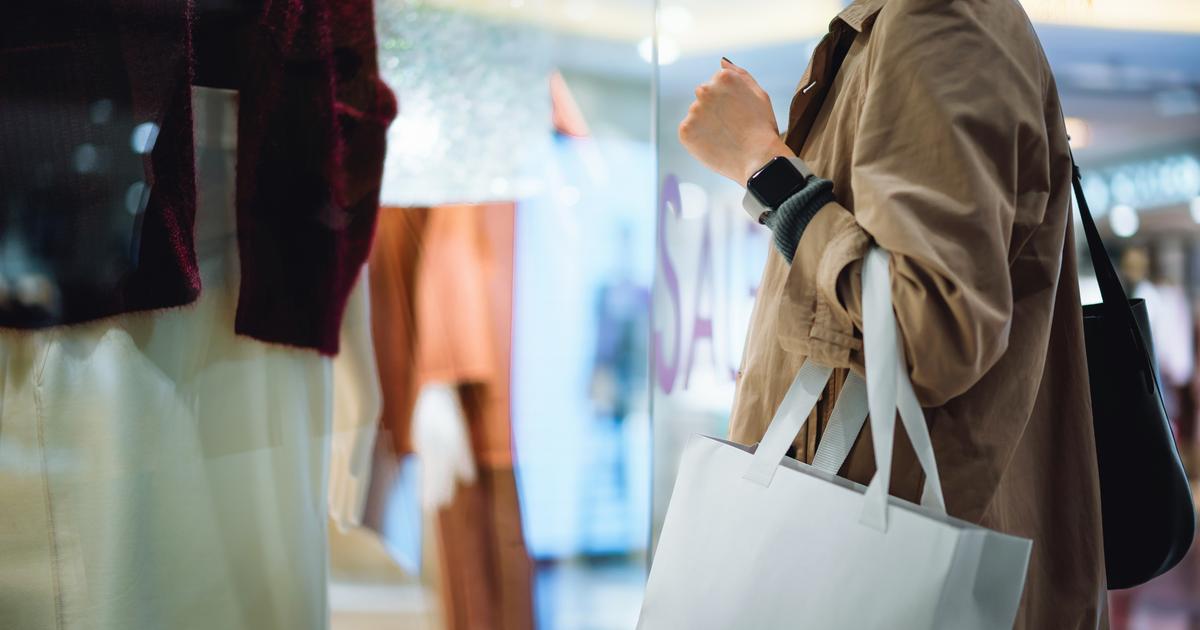Cupboards overflowing without us even knowing exactly what, accusations of human exploitation in ready-to-wear factories, dozens of alarmist reports that implicate fashion in climate change... Here is the anxiety-provoking soil of "Köpskam", literally: "the shame of buying".
Highlighted by the Swedish consulting firm HUI Research, this concept reflects an increasingly widespread malaise among consumers, trapped between their desires and needs and their moral awareness.
How did this evil arise and can it be cured?
Chronicle of a change of mentality.
The straw that made the closet overflow
In May 2019, Marine, 28, returned from a long trip through Latin America.
Six months during which this manager in a travel agency concentrated all her belongings in a backpack.
Faithful to her ritual that follows each of her travels, she is about to buy a pair of Van's as a souvenir.
But this time, at checkout, she makes an observation that freezes her: this pair, she already has it.
"I said to myself: this is ridiculous, I don't even need it," she recalls.
She puts the sneakers down, goes home, and decides to empty her closets.
Same observation for Delphine, 43, who for years went on monthly shopping sprees, before being overwhelmed by a feeling of overflow: “You realize that you are drowned, you no longer know what you have and you always wear the same thing.
And then, it's not that 'cheap', clothes that you buy not to wear”.
A committed content creator on Instagram, she now supports her community towards more responsible consumption.
More than 70,000 subscribers, often lost and overwhelmed by these new ethical issues.
Painful shopping
When they are not talking about clicks and excesses, those disgusted with shopping talk about moral, ecological, but above all social awareness.
For Dinah Sultan, fashion designer at the Peclers prospecting firm, the recent questioning of brands in the Uighur trade has catalyzed this phenomenon: “There, we touched on something very serious: slavery and genocide.”
A coup de grace for the textile industry, the feeling is universal and makes even the least radical react.
“When I see stories that highlight abuse, I immediately stop buying.”
testifies Isabelle, a 60-year-old Cannetanne who does not consider herself to be a committed consumer.
“Personally, I still feel guilty about maintaining an unhealthy system.
»
Dinah Sultan, fashion designer
For some, the guilt is such that it leads to a total rejection of consumption.
"For years, I have hardly bought any clothes, let alone new clothes, and I still feel guilty," admits Aurélie.
This research and CSR manager confesses to having recently felt such discomfort after a checkout that she ended up giving away and reselling her embarrassing loot.
"Personally, I still have guilt about maintaining an unhealthy system."
also confesses Dinah Sultan.
Once synonymous with an act of pleasure and satisfaction, shopping is likened to a faux pas, an immoral deviation.
The causes of this reversal of the situation are multiple.
In recent years, economic models based on globalization and fast fashion have flooded the world with low-cost clothing that meets an immediate desire.
By decorrelating the purchase from the need, they partly made the consumers guilty of a bulimia of clothes.
Opposite, a form of militant ecologist ideology massively activates these levers of guilt thanks to the dissemination of reports and shock campaigns, instrumentalising the conscience of the client to achieve his goals of degrowth.
Two opposing mechanisms, but both based on psychological manipulation of the consumer.
The ideal culprit, the latter bears a responsibility which ultimately is perhaps not totally his.
But then,
Heal evil with good
This new phenomenon is obviously a subject that alarms the players in the field.
Reinsurance processes and the race for certification are implemented to restore confidence but also the pleasure of customers.
Organic materials, "made in France" labels, statements on positive values... Brand communication is now mainly oriented towards eco-awareness.
“The teams that make up these brands think like that themselves, and also feel guilty for not changing their practices as quickly as they would like, assures Dinah Sultan of the Peclers trend cabinet.
But they come up against years of practice around globalization.”
“For years, we were cut off from the production circuits.
We must not neglect the part of temptation.
»
Delphine, content creator
On her Instagram account, Delphine pleads for freedom from guilt: “For years, we were cut off from production circuits, she recalls.
We must not neglect the part of temptation.
Pointing out overconsumption rather than overwhelming consumption, thinking about the lifespan of the garment (can it be reused, resold?) and quite simply the nature of its purchase as highlighted by the Bisou method: so many mechanics of thought that cure the dreaded buying fever.
An unprecedented intellectualization of the act of buying fashion.
Both the cause and the cure for this shopping sickness, the race for information is giving birth to a generation of sharp buyers.
The quest for the label
Thus, the purchase of an eco-responsible piece, validated by a survey and/or deep introspection, gives rise to new pride.
The era of social networks democratizes small designers and promotes sharp pieces, a factor of differentiation.
The younger generations are becoming second-hand experts
and
hunting for THE piece to have.
Likewise, proponents of essentialism preach for a “good taste to-do” stocked with authoritative enduring “good” essentials.
So many practices that reach their limits in large sizes, small budgets and simply lack of time.
"Sobriety, you have to be able to afford it" concludes Dinah Sultan.







/cloudfront-eu-central-1.images.arcpublishing.com/prisa/CW54DGOQTBBXDEI5DHJNBD5WGE.jpg)

